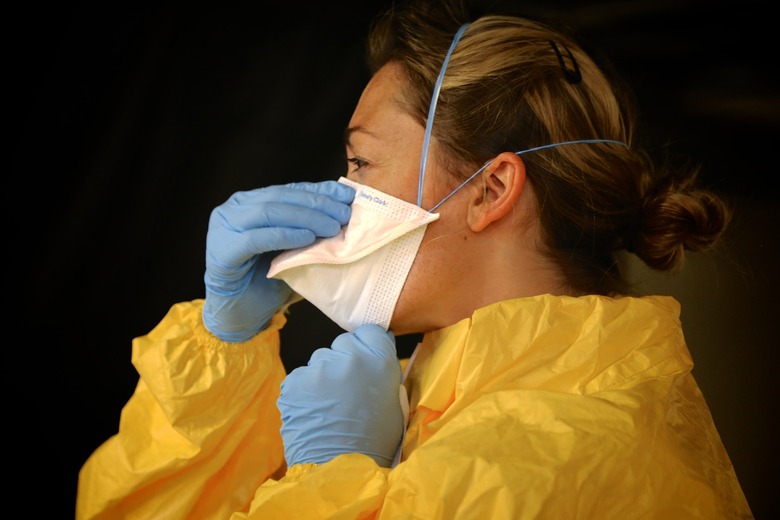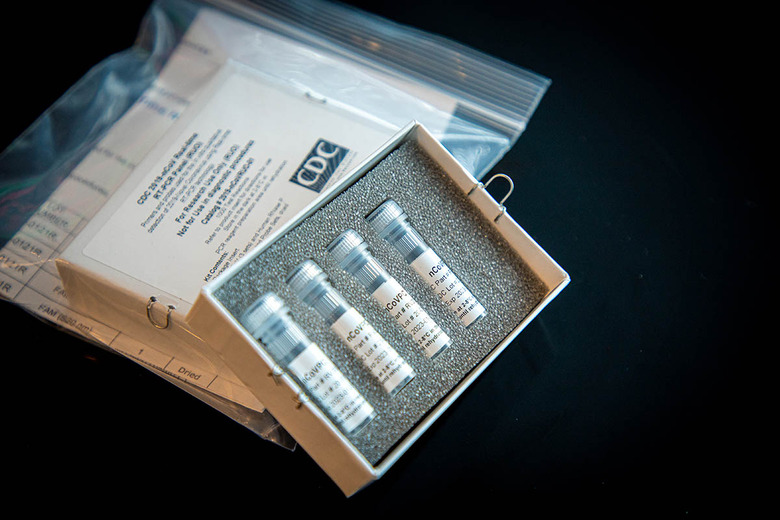Take Coronavirus Quarantine Seriously Warns CDC Amid Test Confusion
The CDC is redoubling its warnings to take coronavirus quarantine seriously, highlighting the groups which are most at-risk as it responds to new reports out of China. The US Centers for Disease Control and Prevention maintains that its "aggressive containment measures" to prevent spread are still the best strategy, particularly given the absence of either a COVID-19 vaccine or specific treatment, but officials responded to concerns that the count of confirmed infected people in America may be misleading.
Despite pressure from the government, pharmaceutical guidance on the possibility of a COVID-19 vaccine remains that it could be 12-18 months away at best. Even then, that's a dramatic acceleration over the 2-3+ years that a typical vaccination program would demand before getting approval.
For the moment, then, the focus is on helping healthcare providers in the US "find and isolate cases in order to prevent spread," according to Dr. Nancy Messonnier of the CDC. Anybody who suspects they have symptoms, or could have been in contact with someone who might have coronavirus, should contact their healthcare provider. That should be done by phone, rather than in-person.
"There may come a day when we're only looking for severe illness, but we're trying to understand how the virus behaves and prevent additional spread," Dr. Messonnier explained. "While information so far suggests that most COVID-19 illness is mild, a report out of China suggest serious illness occurs in 16% of cases. Older people and people with underlying health conditions, like heart disease, lung disease and diabetes, for example, were about twice as likely to develop serious outcomes versus otherwise younger, healthier people."

That, Messonnier pointed out, is a real concern for the CDC, because it could indicate that the growing numbers of US cases are indeed evidence of community spread. "What is happening now in the United States may be the beginning of what is happening abroad," she suggested.
Coronavirus quarantine is serious
Part of that is getting potentially infected people to take quarantine orders seriously. "We ask for people's patience and understanding and most importantly their cooperation," Dr. Messonnier said on a briefing call this week. "If a health care provider or a public health worker tells you to stay home for 14 days unless you need medical care, please do that. Right now, especially individual actions, can have an important impact on how this situation plays out."
The problem is that, with its lengthy incubation period, COVID-19 can actually be fairly light in its symptoms, at least initially. That can lull infected people into believing that they're not actually ill, and don't need to comply with quarantine advice
"You may need to take a break from your normal daily routine for two weeks," Dr. Messonnier insisted. "We have seen this especially in patients from the Diamond Princess cruise ship where a significant number of people have had very mild illness and don't feel particularly bad. So staying home when you are sick is really important. Don't let the illness spread beyond you. Stay away as much as you can from other people."
US coronavirus cases continue to grow - and are tough to count
One of the lingering questions as case numbers grow is just how many people might be affected by COVID-19 in the US. That's become tougher to quantify as CDC testing kits have been joined by third-party test kits provided to medical facilities by other manufacturers.

Many state health departments, for example, are using CDC test kits. Positive results from those are presumed presumptive, until the CDC confirms, but state and local health departments are using them for public health decisions. However in hospitals and other such frontline facilities, it's commercial coronavirus tests that are being introduced, not the CDC tests. Those won't have the public health confirmatory process element.
By the end of the week, Dr. Messonnier says, public health labs will be able to test up to 75,000 people using the CDC tests kits. That means the bulk of testing will be done by third-party kits.
The national numbers that the CDC discloses daily will be updated with state-level figures that are reported back to the agency. However the CDC says it will only be updating those counts once per day, which could lead to discrepancies depending on when local cases are disclosed.
